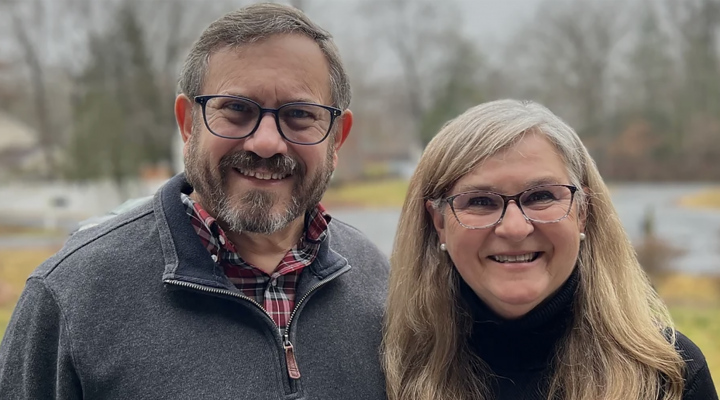The Christian response to migrants must be shaped by Scripture, especially in “purple churches” home to both conservative and progressive believers, Greg Smith said during a recent webinar on biblical responses to immigration.
“We start from Scripture and not from politics or from the economics or from the social consequences. All of that is important, but somehow we need to come to common ground as to what God does call us to do and be,” said Smith, field personnel and former missionary to Latin America with the Cooperative Baptist Fellowship.
Smith and his wife, Sue Smith, are based in Fredericksburg, Va., where they operate LUCHA ministries, a nonprofit that serves the region’s Latin American community. They were hosted by Great Rivers Fellowship, a CBF regional organization covering Arkansas, Louisiana and Mississippi.
A major barrier to compassion for migrants is a lack of firsthand familiarity with human beings who have fled poverty and violence in their home countries and who may be facing deportation and family separation, Sue Smith said.
“One of the problems many of the people in our congregations have is they have never met a refugee or an immigrant.”
“One of the problems many of the people in our congregations have is they have never met a refugee or an immigrant. For them it’s an issue, not a person. I don’t know how many times through the years, when we talked about deportations and about the legality of how people come here, people are very much for immigrants coming here the ‘right way.’ Then one of their friends, or the person who owns the local Mexican restaurant, is in deportation proceedings and they go nuts. … That totally changes the conversation.”
But the issue of immigration is so complicated and emotionally charged that it cannot be addressed simply though sermons or study series, Greg Smith said. Instead, it requires long-term, consistent dialogue and relationship building within congregations.
“What it’s going to take is having a series of conversations where there’s back and forth, where there are questions and chances for people to express their various standpoints and perspectives at this.”
And how Christians are called to treat the stranger will begin to emerge when those conversations are anchored in what the Bible has to say about immigration, he added. Smith said he would begin a study in Matthew 25 — “I was a stranger and you did not invite me in” — and in Old Testament passages about migrants.
“That’s what I would probably lean on in terms of saying, all right, what is the biblical writer attempting to tell those of us who don’t read that story from a context of migration? We read it from a context of stability but recognizing that is not necessarily the story of many of our biblical ancestors. They were migrants, they were on the move.”
Embarking on such an approach will lead to three scriptural truths on immigration, Smith said: the requirement for hospitality; that many biblical figures were migrants; and migrants, refugees and asylum seekers are made in the image of God, he said.
The theme of hospitality is found throughout Scripture, from Abraham and Sarah welcoming the three strangers to the sinful woman in the Gospel of Luke washing Jesus’ feet and anointing his head with oil as a guest in a Pharisee’s home — while the Pharisee merely looks on.
“She received Jesus. She gave Jesus the hospitality that was expected in that day and age, but the Pharisee did not give to him that hospitality. So he (Christ) made it a point to tell the Pharisee you didn’t do what you knew from our heritage you were supposed to do. She received me. You did not. She accepted me into her life. You did not. She welcomed me. You did not.”
Practicing hospitality toward guests and migrants was a central part of faith in Jesus’ time and in the history of the Jewish people, Smith said. “We find in the law there are, over and over and over again, commandments, mandates, directions by God of how we are to treat those who are in our communities, who are commonly called either aliens or strangers or, in our lingo, migrants, refugees and asylees.”
The theme of migrant identity and heritage is also evident throughout the Bible, including in a passage in Deuteronomy 26 describing Israel’s nomadic ancestors settling in Egypt where they were eventually enslaved, he continued.
“And throughout the New Testament we find inferences that our home is not here, our home is elsewhere. Our home is not on this earth. Our home is beyond the idea that we are not to settle down necessarily here as much as continue moving in our faith journey toward where God is leading us. We are talked about as, in a sense, people on the move.”
This was true of Jacob, Ruth, Ezekiel and Jesus’ family, Smith added. “Joseph, Mary and Jesus actually asked for protection and shelter after arriving in Egypt. … Our biblical ancestors were people on the move.”
Migrants bear an important message to their hosts as people made in the image of God, Smith explained. “Being made in God’s image and being made in God’s likeness is a gift or a right that individuals have of actually representing God before other people. It is our ability as stewards of the world to represent God before others.”


